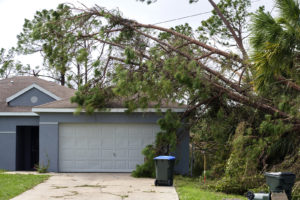“There have been 341 weather and climate disasters since 1980,” says the Oceanic and Atmospheric Administration (NOAA). This averages to 7.9 weather and climate disasters per year.
Add to that the wildfires that run rampant – all 66,255 of them.
Are you ready for the next natural disaster preparation phase in your life?
Natural disaster preparation can save your home, your life, and even thousands of dollars on homeowners insurance.
Natural Disaster Preparation When One is Headed Your Way
Florida and Louisiana may be the most common victims of the Atlantic hurricane season. And as we have seen in the last few years, everyone from Texas to the Jersey shore needs to prepare themselves.
Anyone who has been through a hurricane or other natural disaster will tell you that waiting to prepare when a disaster is on the horizon isn’t wise. More important, it’s stressful.
Get supplies months in advance and make plans for what you’ll do when the next disaster hits.
Natural Disaster Preparation – Evacuate or Hunker Down?
If your local city mandates an evacuation order, then you should pack up and go. In fact, even if there is a chance a hurricane will hit your area, you ought to get out of town early if you can.
Otherwise, you face becoming trapped and vulnerable in the ensuing traffic jams. Plus, as we have seen during the worst weather disasters of the last decade, it isn’t always the wind and rain that is the worst threat to your safety – often it is the mayhem that follows. Whether you are staying or going, you need to have your emergency kit ready and have your essentials in containers ready to go.
Natural Disaster Preparation goodies :
- Plenty of water (at least 1 gallon of water per person, per day – I buy 2, 5-gallon containers)
- First aid kits
- Medications
- Flashlights – I prefer Surefire with high lumen ratings.
- Radio
- Batteries – lots!
- Copies of important documents including ID and your homeowner insurance policy
- Weather-appropriate clothing, such as heavy jackets, boots and rain gear.
- Food for 5-7 days (don’t forget pet, baby food and infant formula)
Evacuating? Before heading out, do the following:
- Turn off all pilot lights and shut off the gas line into the home.
- Turn off the water supply and the master electrical breaker.
- Secure anything outdoors that might fly away
- Board up the windows or close hurricane shutters. (When your budget can afford impact windows, it’s the best investment for your home. Hurricane proof, provides home security and reduces enegy consumption).
- Use sandbags where necessary
Get approaching hurricane, tornado, or other storm alerts and forecasts by visiting the National Weather Service’s National Hurricane Center online at nhc.noaa.gov. For wildfire preparedness, visit nfpa.gov, the National Fire Protection Association’s website.
The final natural disaster preparation idea to consider is make your final decision to stay or leave 72 hours before expected landfall. If you delay any further, highways get jammed. For example, when hurricane Irma hit Florida in 2017, my family waited until 24 before it landed. By that time the highways going north to Georgia were gridlocked. What is a normal 7-hour drive took us 26 hours. Please
Natrual disaster preparation is not something to take lightly or to wait until it’s too late. Get your plan ready now so all you you do then is implement.







